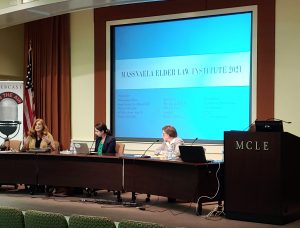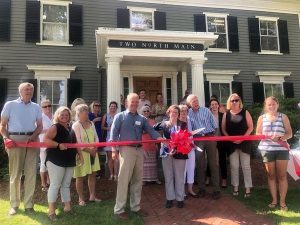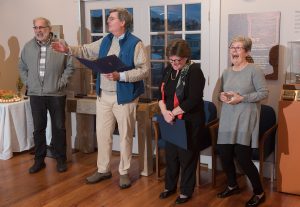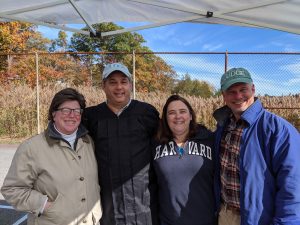Sawyer Free 2025 releases new naming opportunities as benefit luncheon kicks off summer season
Category: Uncategorized
Ipswich clammers turn to Atty. Fine for help
Attorney Fine speaks at elder law conference in Boston
Attorney Fine was a panelist at the annual Elder Law Institute in Boston, sponsored by the Massachusetts Chapter of the National Academy of Elder Law Attorneys, on September 24, 2021. From left, Patricia Keane Martin, Esq. of Seegel Lipschutz Lo & Martin, Lisa M. Neeley, Esq., of Mirick O’Connell, and Attorney Fine gave a rundown on recent cases.
Boston Bar Association Journal features Kendall case
https://bostonbarjournal.com/tag/in-the-matter-of-the-estate-of-kendall/
The Boston Bar Association recently asked Attorney Meredith A. Fine to write an article about the landmark Kendall case, in which the Supreme Judicial Court ruled that MassHealth claims against estates can only be made within three years of the beneficiary’s date of death.
Attorney Fine opens second office
State’s highest court rules in favor of Attorney Fine’s client
The Massachusetts Supreme Judicial Court ruled that the Estate of Jacqueline Ann Kendall was not required to pay more than $100,000 to MassHealth. The landmark decision was issued December 28, 2020. Attorney Meredith A. Fine represented the Estate and was strongly supported by the Massachusetts Bar Association, the Real Estate Bar Association, the Massachusetts chapter of the National Academy of Elder Law Attorneys, and the Abstract Club.
Justice Scott L. Kafker, writing for the Court, explained that the Massachusetts Probate Code created “an ultimate time limit” of three years for all creditor claims on estate and did not make an exception for MassHealth. The Court noted that, as a creditor, MassHealth has the same right as any creditor to open an estate on its own motion. The Court also noted that MassHealth already has more time to file its claims than other creditors,
“The three-year ultimate time limit is a critical provision ensuring the orderly settlement and liquidation of estates in a relatively expeditious manner. We conclude that if the Legislature intended to create an exception for MassHealth to this ultimate time limit, it would have done so expressly…” wrote Justice Kafker.
The case was the first test of the statute of limitations on MassHealth claims under the Probate Code that was passed in 2012.
“The statute in question was extremely clear,” said Attorney Fine. “At some point, estates have to close. The Legislature chose three years and I’m grateful, on behalf of Ms. Kendall’s heirs, that the Court did not disturb the Legislature’s judgment.”





